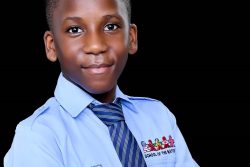Even as Guyana mulls putting one of its own vessels to ply the Guyana to Suriname route following the docking of the Canawaima Ferry due to mechanical problems, government is currently engaging its Surinamese counterparts on the way forward.
“We have completed what we need to do insofar as our obligations and so it is now really a matter of getting the two sides together to recognise that this is a service that the people are depending on and if it becomes necessary, I believe our Minister of Public Infrastructure has already started to contemplate whether we will have to put a vessel there ourselves,” Director General of the Ministry of the Presidency Joseph Harmon told a press conference on Friday.
“They are engaged—that is the Ministry of Foreign Affairs and the Ministry of Public Infrastructure—are in negotiations with their counterparts in Suriname with respect to the way forward. The question with whether a new vessel will go there, who is going to be responsible? …all of these are questions that will have to be sorted out,” he further explained.
Last Monday, the Department of Public Information (DPI) announced that the ferry service was suspended until further notice.
Terminal Manager, Gale Culley-Greene, had told DPI that the ferry has been experiencing mechanical difficulties for some time and a decision was taken to have the vessel assessed and repaired.
According to the Ministry of Public Infrastructure’s website, the Canawaima Ferry Service Inc., which was incorporated in Guyana in October of 1998, is jointly owned by the Governments of Guyana and Suriname. The ferry was inaugurated in 1998 through a US$20 million European Union-funded project. The ferry service has not been without its hiccups and has experienced engine difficulties in the past.
Harmon lamented that the vessel, which in 2016 moved over 116,000 passengers, had continued to experience difficulties and that its cancellation of services had been discussed at last week’s Cabinet meeting. He pointed out that the engine of the vessel “had been limping for some time and the engine was being towed by a tug” during its trips between the two countries.
Reflecting on the agreement between the two sides, the Director General reminded that issues pertaining to the operations had engaged the attention of the two countries’ leaders, Presidents David Granger and Desi Bouterse. “The two sides had agreed on good officers who would lead that cause. It has a specific issue about funding and this is something that the two sides would have to work out. We have completed what we need to do under the arrangement. So now it is a matter of getting the two sides together to recognise that this is a service that the people are depending on,” he said.
Asked if in the interim government would examine operations at the “back track route,” Harmon said, “We do not believe in back track. We believe that everything that is done needs to be lawful. As a government we will never encourage back track operations.”
“What has happened is that over the years there has developed, at a certain location on the Corentyne, persons who actually leave and enter Guyana without going through the normal process. I think what has happened now, on the other side of Suriname, they have put in place some arrangement to facilitate it and I believe that over on our side we will consider putting in place formal legal arrangements for persons to leave this country and come back. But we do not sanction backtrack operations. It is illegal,” he added.
In 2016, officials stated that in terms of the income and expenditure, the ferry service remained an economical venture. While income decreased by 10% that year, a profit of $34.8 million was still achieved.
The service earned $153.8 million in 2016, $10 million less than the $163.8 million it earned in 2015. However, when compared to its expenditure— $119 million in 2017 and $111.4 million in 2016— the ferry service was still able to make a substantial profit. It was also able to garner US$54,918 in foreign currency.
Figures for last year and the first quarter of this year were not immediately available to this newspaper.







